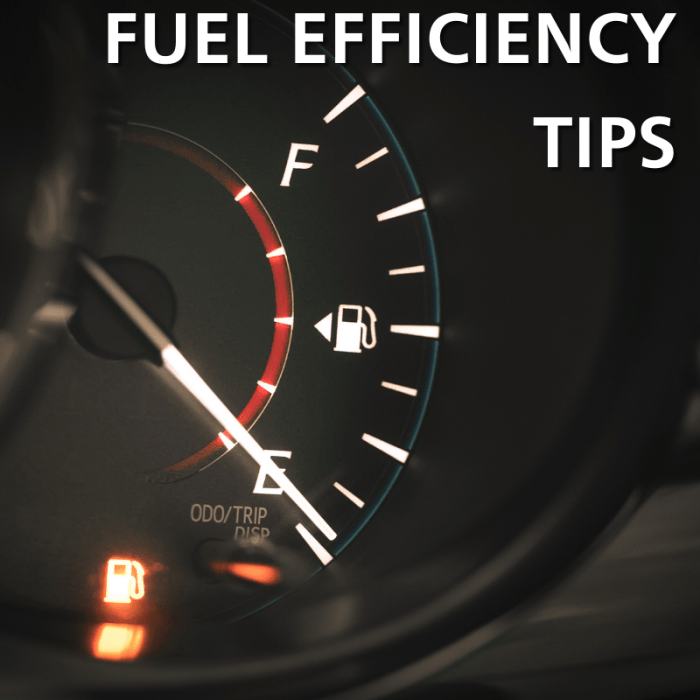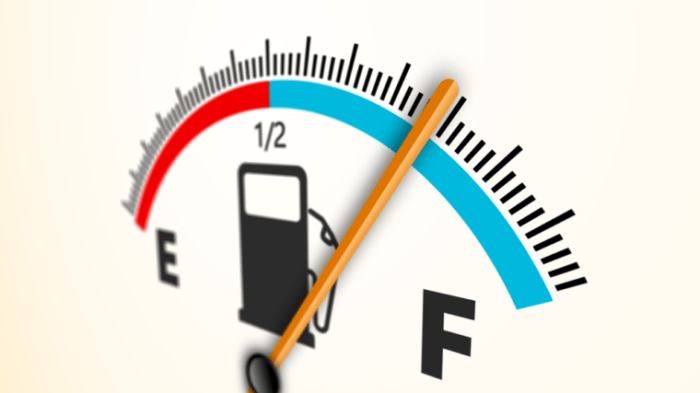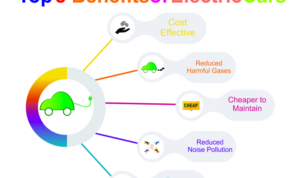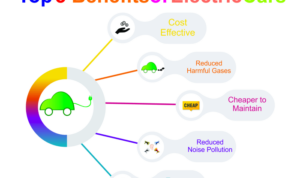Fuel efficiency tips are essential for maximizing your vehicle’s performance and minimizing environmental impact. From driving habits to vehicle maintenance, learn how to save fuel and save money in style.
Get ready to rev up your knowledge on fuel efficiency and hit the road with these expert tips that will have you cruising in the fast lane of savings.
Importance of Fuel Efficiency

When it comes to vehicles, fuel efficiency plays a crucial role in various aspects. Let’s delve into why fuel efficiency is so important.
Impact on the Environment, Fuel efficiency tips
Improving fuel efficiency in vehicles can have a significant positive impact on the environment. By using less fuel, vehicles emit fewer greenhouse gases, which helps reduce air pollution and combat climate change. This is essential for creating a healthier and more sustainable planet for future generations.
Benefits of Improving Fuel Efficiency
- Save Money: Vehicles with higher fuel efficiency consume less fuel, resulting in cost savings for the driver.
- Reduced Dependence on Fossil Fuels: By using fuel more efficiently, we can decrease our reliance on finite fossil fuel resources.
- Extended Vehicle Lifespan: Improved fuel efficiency can also lead to less wear and tear on the engine, potentially extending the lifespan of the vehicle.
- Government Incentives: Some governments offer incentives for owning fuel-efficient vehicles, such as tax credits or rebates.
Driving Habits for Better Fuel Efficiency: Fuel Efficiency Tips
When it comes to saving fuel, your driving habits play a crucial role in determining how efficient your vehicle is on the road. By making some simple adjustments to your driving style, you can significantly improve your fuel efficiency and save money in the long run.
Impact of Speeding on Fuel Consumption
Speeding not only puts you at risk of accidents but also has a negative impact on your fuel consumption. Driving at high speeds increases wind resistance, which forces your engine to work harder and burn more fuel. By maintaining a steady speed and obeying the speed limit, you can improve your fuel efficiency and reduce the amount of gas you use.
Techniques for Smoother Acceleration and Braking
Aggressive acceleration and sudden braking can waste a lot of fuel, as they require more energy from your engine. To improve fuel efficiency, try to accelerate gradually and smoothly, allowing your vehicle to reach its desired speed without putting unnecessary strain on the engine. Similarly, anticipate stops and brake gently to avoid wasting fuel on abrupt stops and starts. By adopting these techniques, you can drive more efficiently and save money on fuel costs.
Vehicle Maintenance for Fuel Efficiency
Regular vehicle maintenance plays a crucial role in ensuring optimal fuel efficiency. By keeping your car in good condition, you can maximize fuel economy and reduce overall costs.
Proper Tire Pressure
Maintaining the correct tire pressure is essential for fuel efficiency. Underinflated tires can increase rolling resistance, causing the engine to work harder and consume more fuel. On the other hand, overinflated tires can lead to uneven wear and decrease fuel efficiency. Check your tire pressure regularly, ideally once a month, to ensure they are inflated to the manufacturer’s recommended levels.
Clean Air Filter
A clean air filter is vital for efficient engine performance and fuel economy. The air filter prevents dirt and debris from entering the engine, allowing for proper combustion of fuel. A clogged air filter can restrict airflow, leading to decreased fuel efficiency. Make sure to inspect and replace your air filter as recommended by your vehicle’s manufacturer to maintain optimal fuel efficiency.
Fuel-Efficient Driving Technologies

In today’s automotive industry, there are various driving technologies aimed at improving fuel efficiency and reducing carbon emissions. These technologies not only benefit the environment but also help drivers save money on fuel costs in the long run.
Hybrid and Electric Vehicles
Hybrid vehicles combine a traditional gasoline engine with an electric motor, allowing for better fuel efficiency by switching between the two power sources as needed. Electric vehicles (EVs) run entirely on electric power, producing zero emissions and offering excellent fuel efficiency. Both options are great choices for eco-conscious drivers looking to reduce their carbon footprint and fuel expenses.
Aerodynamics for Fuel Efficiency
Aerodynamics play a crucial role in vehicle fuel efficiency. By reducing drag and improving airflow around the vehicle, manufacturers can enhance fuel efficiency significantly. Features like sleek body designs, underbody panels, and active grille shutters help streamline airflow, allowing vehicles to move more efficiently through the air and consume less fuel in the process.





